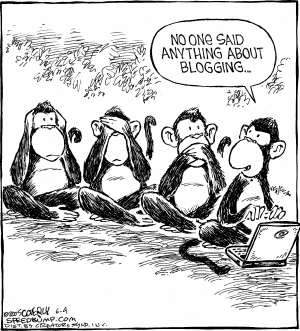 In order to evaluate the differences between traditional forms of commercial production and the new idea of 'produsage' (Bruns, 2008), it is necessary to consider the reasons such a comparison is beneficial to our understanding as members of the information age. That is, we must analyse in some way the reason for the introduction of the new term produsage, and why it is one that is likely to squeeze its way into the ‘words for regular use’ section of our vocabularies.
In order to evaluate the differences between traditional forms of commercial production and the new idea of 'produsage' (Bruns, 2008), it is necessary to consider the reasons such a comparison is beneficial to our understanding as members of the information age. That is, we must analyse in some way the reason for the introduction of the new term produsage, and why it is one that is likely to squeeze its way into the ‘words for regular use’ section of our vocabularies.It would seem that an important step in the comparison between production and ‘produsage’ would be to define the term ‘produsage’. However, when attempting to do so the very nature of the term proves this to be somewhat problematic. Bruns (2008) explains that the need for the term ‘produser’ comes from the fact that,
“…users are always already necessarily also producers of the
shared knowledge base, regardless of whether they are aware of
this role—they have become a new, hybrid, produser.”
As an active participant in producing content, mainly through social networking web sites, I can appreciate the role that I play in contributing to the ‘product’ that is user-lead software. I put this term in inverted commas to highlight the ‘terminological dilemma’ (Bruns, 2008) posed by the existence of opportunities for content to be user-created. That is, that because people can participate in and contribute to virtual cultures and online communities, the ‘product’ as such is never finalised, but is instead being constantly developed and arguably improved.
Bruns (2008) suggests that, “… not the adjectives and qualifiers which we may attach to the term ‘production’ are the problem, but the very noun itself.” From this, it can be plausibly deduced that it is certain behaviours exhibited by consumers when participating in online communities, or contributing to something like open source software, that fuels Bruns’ (2008) suggestion to describe what is occurring as ‘produsage’. Therefore, the differences between commercial production, which Bruns (2008) suggests will never be completely replaced, and produsage lie simply in the opportunity for users and consumers of the ‘product’ to adapt the content to their own personal interests and needs. Traditional commercial production involves the development of products that are offered to consumers to use, but not to broaden or contribute to. Therefore, the problem as such only lies within the terminology used; welcome ‘produsage’.
In order to add consequence to this shift in terminology through my own personal interpretations, I feel I must connect the importance of amending said terminology to the journalism industry. As a traditionally print industry, and one which I hope to enter, I appreciate not only the shift in terminology, but the act of produsage itself. That is, through the opportunity for me to contribute to sites such as this one, Blogger, I am connecting with a potentially global audience through the medium of the internet. Although the credibility of blogging is somewhat debated, I see it as an opportunity for my creative practice as an aspiring journalist to thrive.


